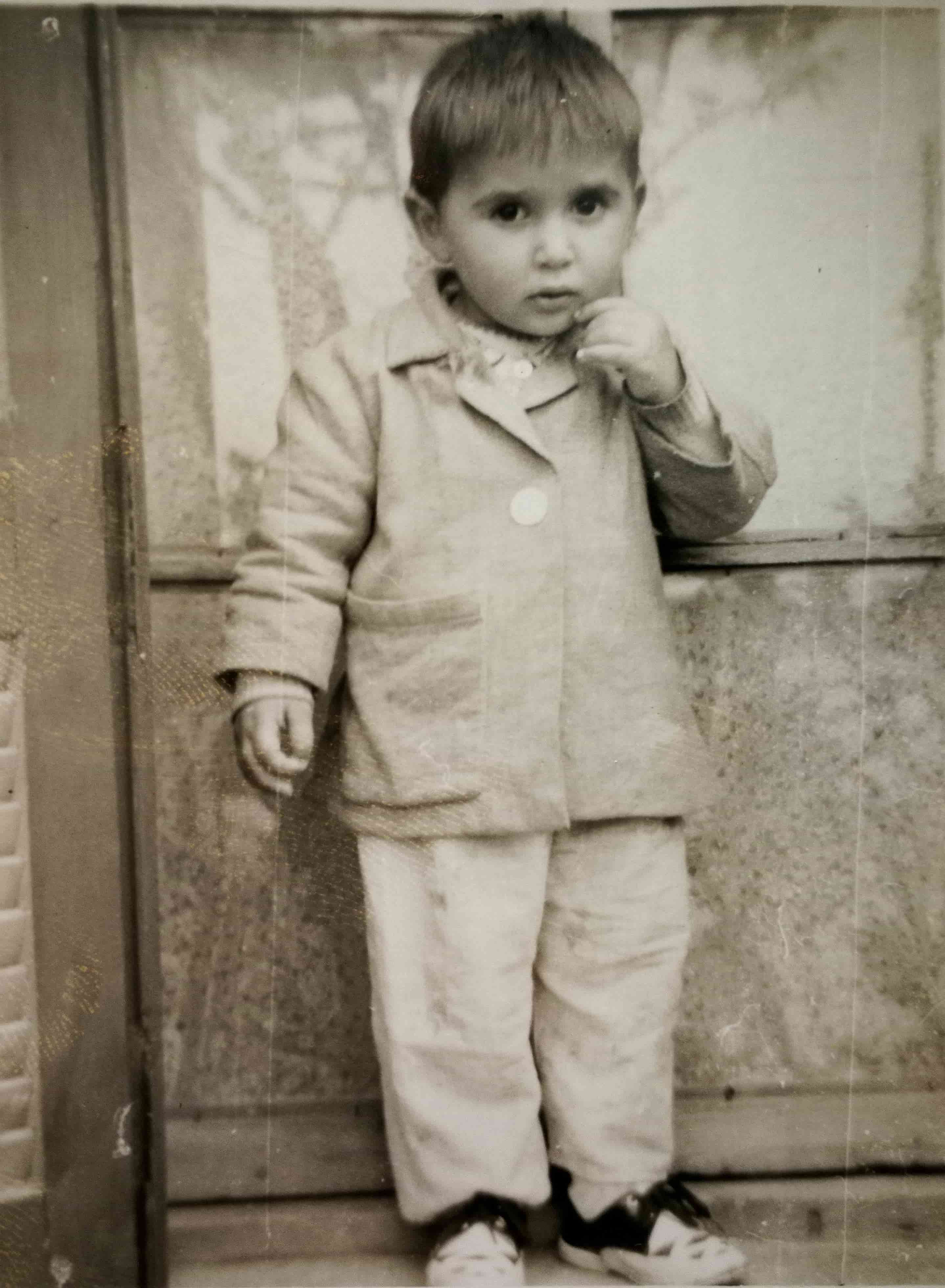
a two-year-old kampung boy, wondering what’s coming…
1. Could you tell us a bit about yourself? (Do include details about your background)
I was born in a small village in Crete, Greece, in July 1966. Life was dramatically different back then. Growing up, there was no TV, no phone, and no air conditioning.
We’d get one pair of shoes every year, and there was no Toys R’ Us in the village. Instead, we used to play outside in the summer, and did lots of crafts by the fireplace in the winter.
Dad was a farmer, as most families in the village were. We had vineyards and olive groves, and everyone in the family helped. We were not rich, but we got by. Working in vineyards and olive groves might sound exciting, but it was cold and muddy in the winter and hot and sweaty in the summer.
I hated it, but everyone contributed to the farm.
When I was twelve, two things happened which changed my life. Our elementary school teacher introduced us to math and geometry, and I fell in love with it. However, that was also the year my dad passed away, which changed our life completely.
Now in my teens, I was suddenly the man of the house. I had to help my mom support the family. Meanwhile, my love for math grew and so did my dream to enter the Math University after High School.
Focused and determined, I did well in the national placement exams when I was 18, and the Math University opened its doors to me with high honours.
My family was incredibly proud. Little did I know however, that barely a month into the life I dreamt of for the past 6 years, my love for math would vanish. I realized that math would not be my future.
And so, I quit. For the next three years, I became a rebel without a cause. I grew my hair out, bought a guitar, and joined a band. I was living life one day at a time. Little did I know that the universe had other plans for me
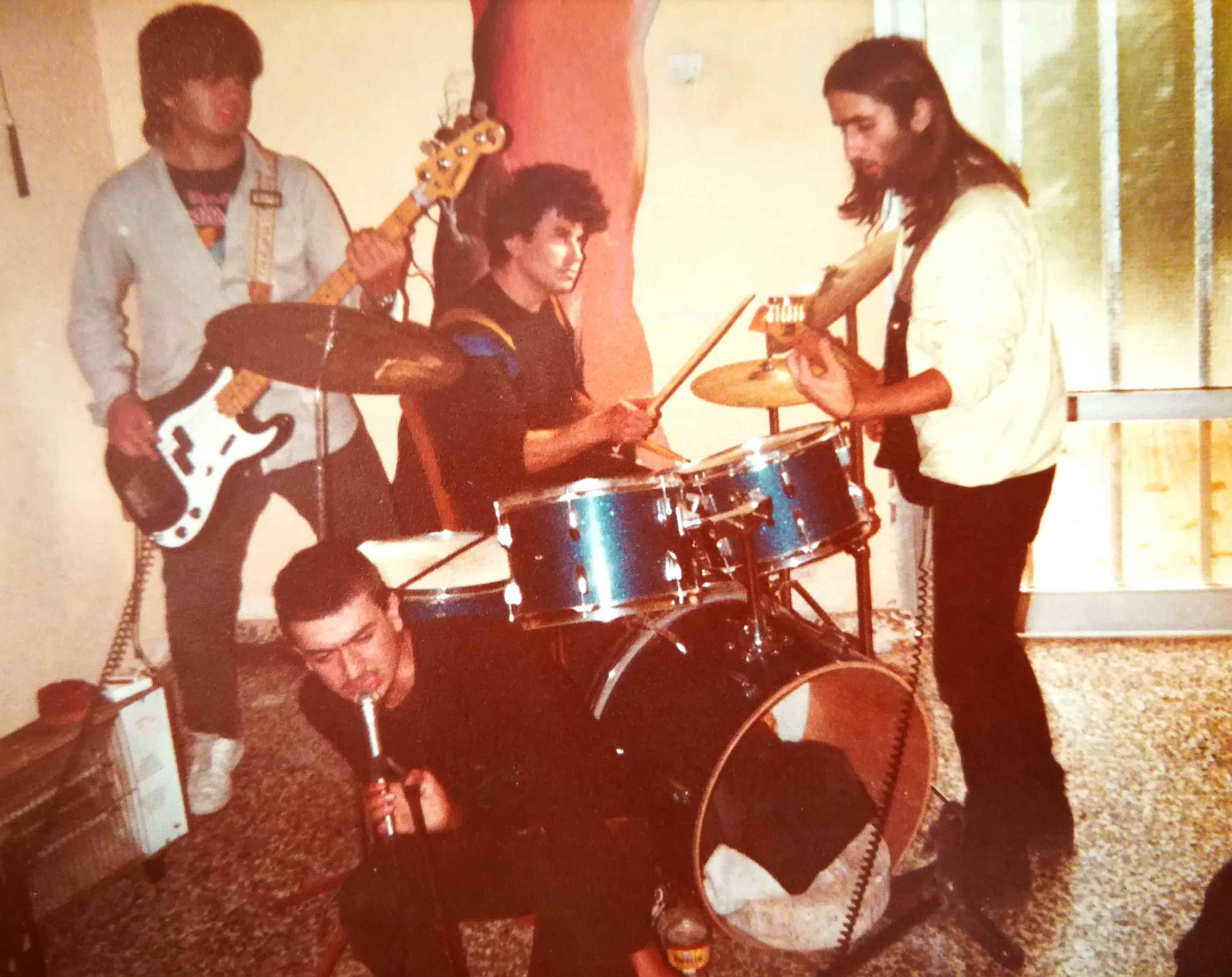
1995, a rebel without a cause
Three years later, a nasty motorcycle accident put me in bed for three months. That’s when I realized what I wanted to do.
Sometimes taking time off allows you to slow down, stop, think, and assess the best course of action. And since I wasn’t doing it on my own, the universe helped me. The three months I spent bedridden made me reconsider my life.
That’s when I discovered my true love, advertising.
When I could walk again, I sold my motorcycle, packed my bags & guitar, and left for USA, where I studied advertising and media. I graduated from the University of Florida with a 4.0 and High Honours, not because I wanted to excel in academics, but because I was madly in love with what I was doing – advertising. It was simply magical.
After graduation, I landed a job in New York at DMB&B, smack in the middle of Broadway during the Mad Men years. It was the ad paradise I dreamt of, and I enjoyed every moment of it.
The time had come, however, to go back to Greece to fulfil the mandatory national army service (an experience on its own), but after that I came right back to advertising. I worked with JWT in Athens and oversaw all the media for the agency’s international clients.
Life took a sharp turn in 1997, when DMB&B, the agency I was working for in New York, asked me to go to Japan and launch MediaVest. I knew almost nothing about Asia and believed that people who eat raw fish must be crazy. I was Greek you see, and we grill everything with oregano and olive oil.
Still, I took the leap of faith, which I’m sure the Universe, and perhaps my dad up in the heavens, had intended for me to take.
I landed in Narita in September 1997, a single man with two Delsey suitcases. Five years later, I left Japan – married, with a 40-foot container, and a mad love for sushi.
MediaVest had launched, while DMB&B had changed its name to D’Arcy, which was bought by Leo Burnet, which was partially bought by Dentsu, which then formed B|Com3, which was bought by Publicis, which finally changed its name to Beacon.
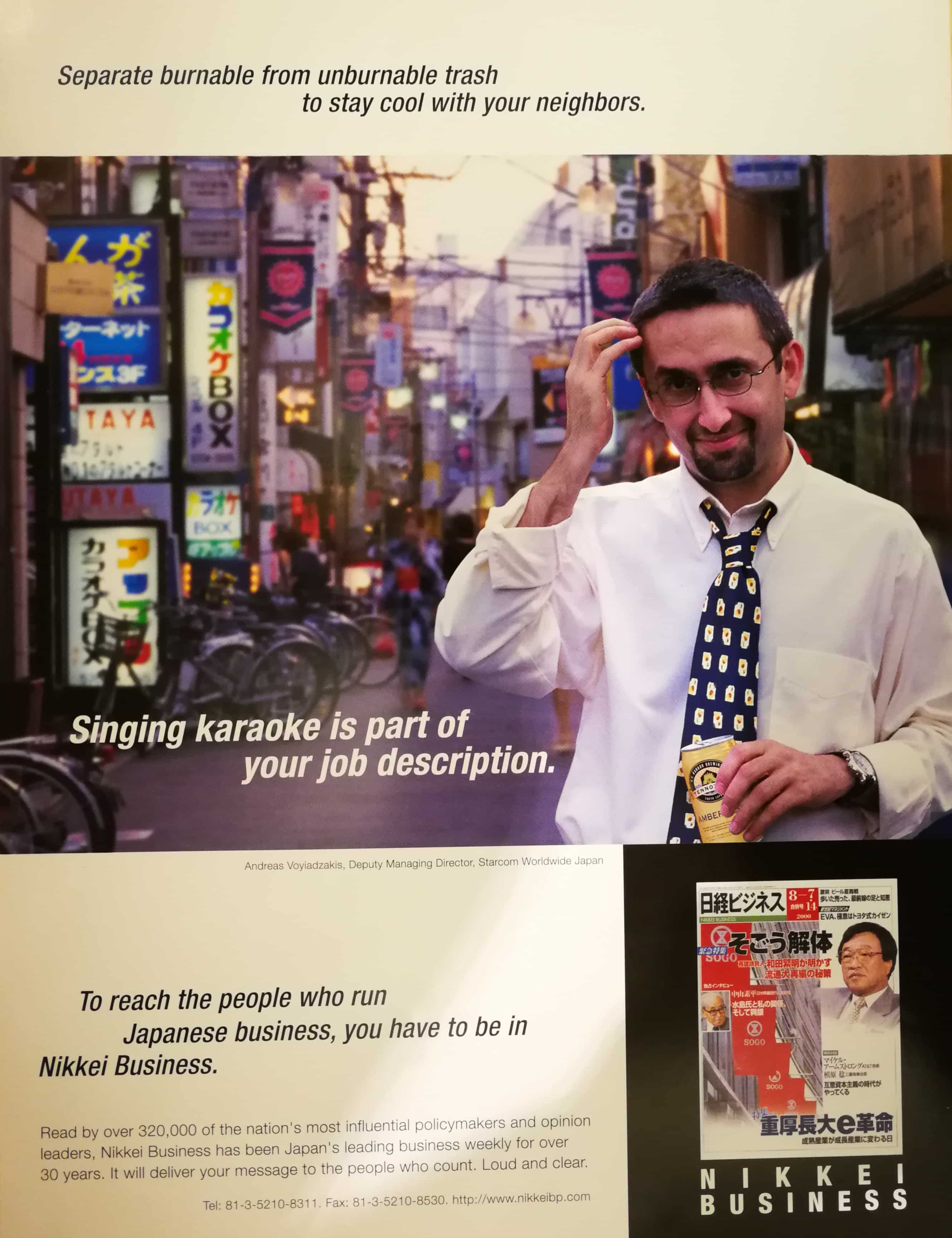
nikkei business advertising press ad, japan 2001
It was an incredible five years. After that, the job led me to Taiwan in 2003. I was tasked with restructuring Mindshare and the launch of GroupM in the country. Another five years passed by, and after GroupM successfully launched, my family grew, and we left Taipei to move to Malaysia.
My family now included my son, who was born in Taiwan, and was already two years old when we landed in KLIA.
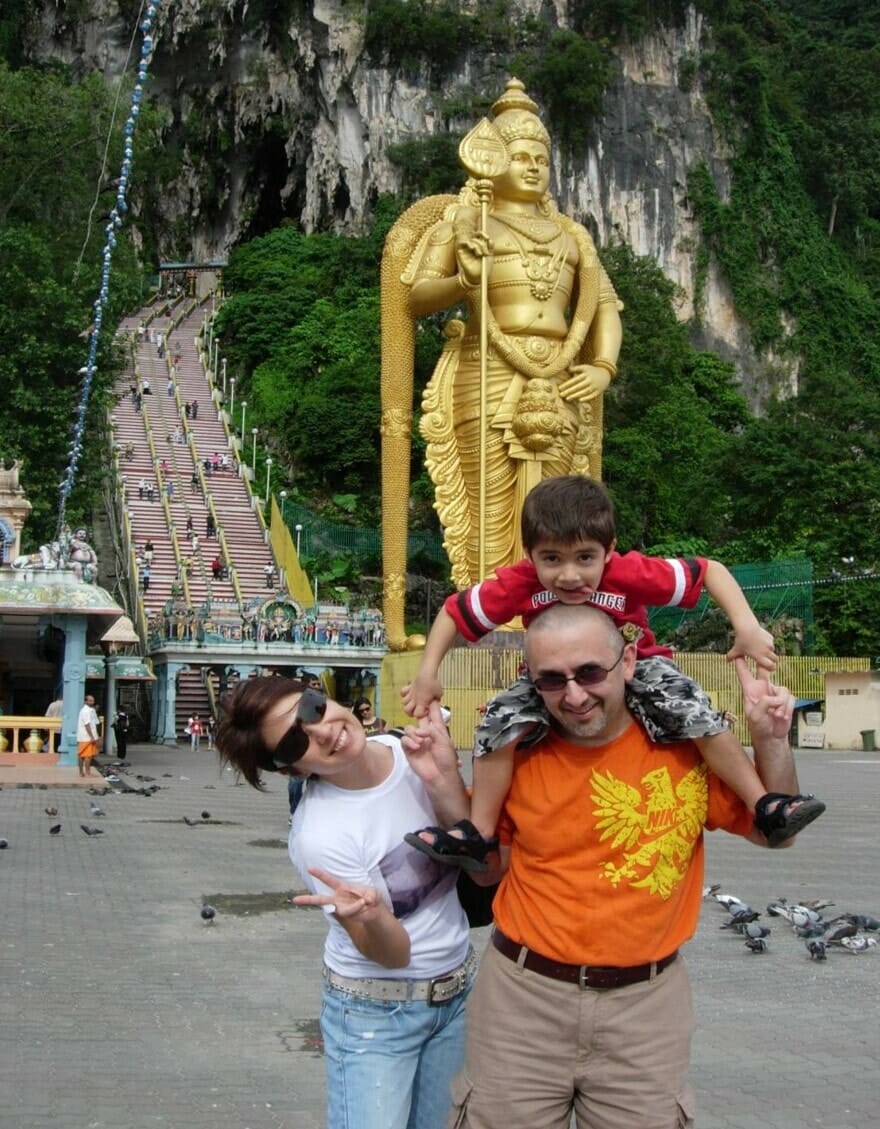
malaysia 2007
Since then, Malaysia has become home. It’s an amazing place, with amazing people, and a truly diverse culture – a recipe which I loved. I managed the Omnicom Media Group for ten years, before starting Havas Media in 2016, which I still run today.
All in all, I had a dozen amazing years in advertising in Malaysia alone, living through a cycle of the Chinese zodiac, and ready for another round. With its ups and downs, successes and failures, sweat, tears and joy, Malaysia has been perhaps the most productive, most rewarding, and most fulfilling time of my life – and to this day, I’m still madly in love with advertising!
2. Your life certainly hasn’t been easy. What would you say kept you motivated?
I thought of quitting many times. But quitting from what, and for what, was never clear to me. So, I told myself to carry on. Looking back now, I can see how everything played in a role in my life.
From how my dad managed the farm, how he managed and loved our family, the struggles my mom had to face, and certainly with dad passing away – all these things affected me. I saw unfairness, trouble, hate, but also good things like love and determination.
I had to deal with the high expectations and the huge pressure imposed on me. Back then, I had no direction – I was just taking it all in and did my best.
Looking back, I believe a few things made me carry on and push forward.
One of them were the values I grew up with – family unity, support for each other, and hard work. Nothing was taken for granted, and no one would quit, not even when our problems seemed overwhelming.
Also, when dad died, some of the people whom I thought were friends before let us down. The anger I felt from their betrayal pushed me to try harder, and to prove to the world that we could make it.
I did everything to help mom in the fields, while at the same time working on being an A-student. I wanted to prove to these so-called ‘friends’ that we would make it, despite their betrayal.
The third and most critical reason was mom. Mom was a wise woman, strong, compassionate, unconditionally loving, and was the safety net for all my screw-ups. When everyone scolded me for keeping my hair long, she told me I looked cool. When I knew my guitar playing skills were bad enough to drive away all the insects in our home, she told me she loved it, and asked me to play some more.
Even when everyone thought I was crazy to quit math school and go abroad, she gave me her blessing and told me to do what I loved. And sometimes, when I hurt her (without intention of course, as all sons do at some point or another), she’d open her arms and hug me tighter.
That was my mother. Strong. Wise. A pillar and an anchor. My safe, loving, harbour.
Every day I recall her wisdom and teachings, and how she would never quit despite the odds. I won’t either.
“We are here for a reason,” she said. “We just don’t know what it is yet. So carry on and succeed.”
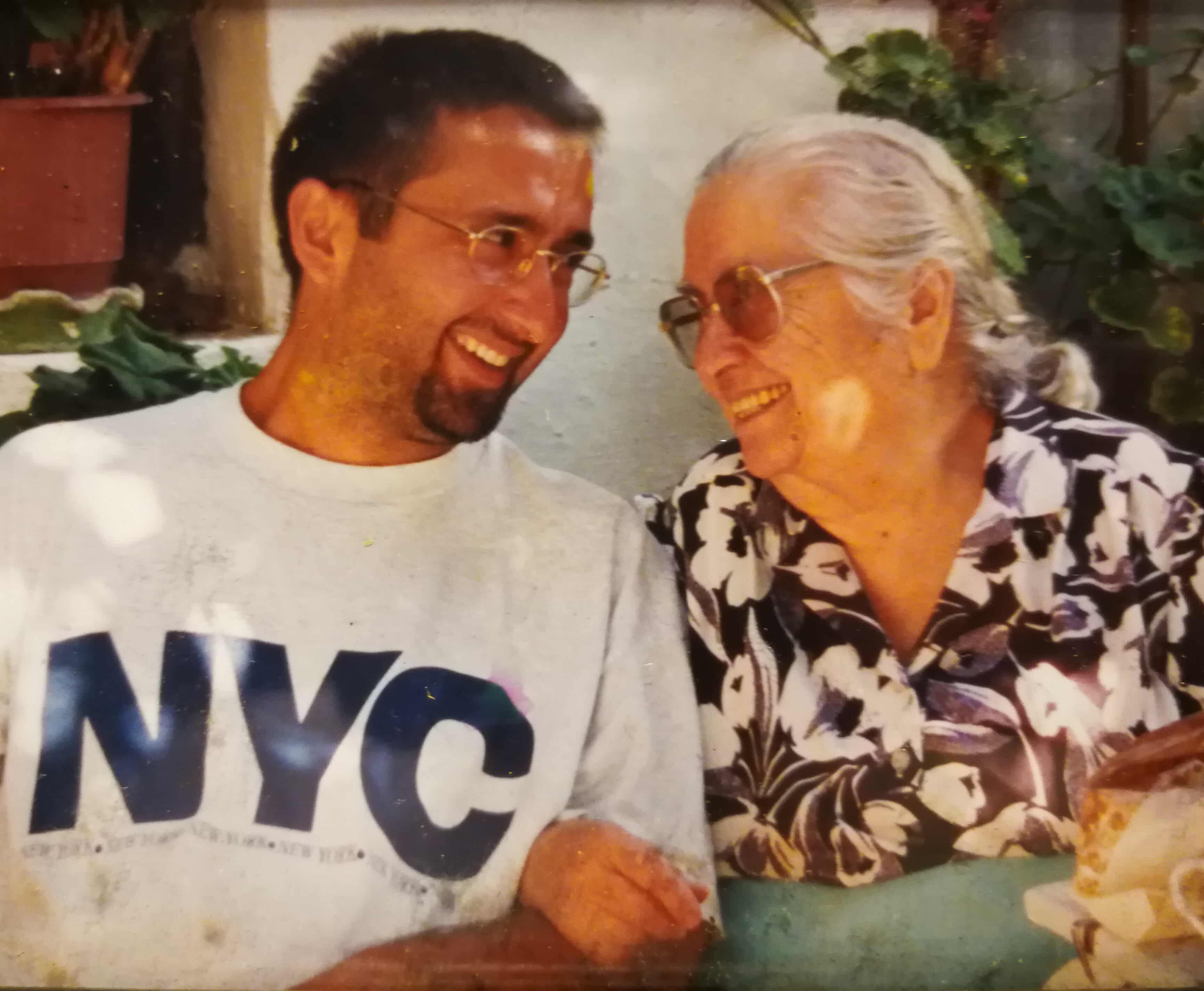
mom and i, summer of 1999
3. With your many years of experience in the field, what does it take to be a good leader? What are the traits of a good leader?
If you google the word “leadership” you’ll come to a few billion results in less than ten seconds, complete with thousands of definitions and hundreds of manuals teaching you how to be a good leader.
For me, a good leader is made, not born. Leadership is developed, just like any other skill. Not only can it be taught, but it can become better with time. It takes practice, determination, dedication and persistence.
I was fortunate enough to have lived and worked in six different countries with more than a dozen different corporate organizations and cultures. I have seen true amazing leaders, as well as “self-proclaimed” fake ones.
For me, a leader is like the conductor of an orchestra. The only silent person in an orchestra is the conductor, and yet without him/her, there is no music. A leader should be like that – he/she is the wind beneath the wings of the team, and the guide at the same time, orchestrating the bigger picture.
Looking back at the last 52 years, and the leaders who affected my life, both positively and negatively, here are twelve critical traits that, in my opinion, define a truly great leader:
- One who has a high standard of personal ethics & integrity, and practices them even when no one is looking.
- One who has high energy and is walking the talk
- One who is courageous, able to take risks, and never gives up
- One who is selfless, sensitive, tolerant & humble
- One who puts the betterment of the team ahead of his/her ego
- One who is dedicated, focused and disciplined
- One who is not a complainer, but a positive doer
- One who is creative in thinking and action
- One who is driven by genuine enthusiasm and loves what he/she does
- One who is inspired and inspirational, as to inspire you must be inspired yourself first.
- One who is cool under pressure and makes the buck stop at his/her desk, and can accept responsibility
- One who is caring, as people do not care how much you know until they know how much you care.
These qualities are not genetic, neither vested. They are earned and acquired with effort, dedication, determination, and a genuine interest to make a difference. Once practiced, they transform the team and bring greatness.
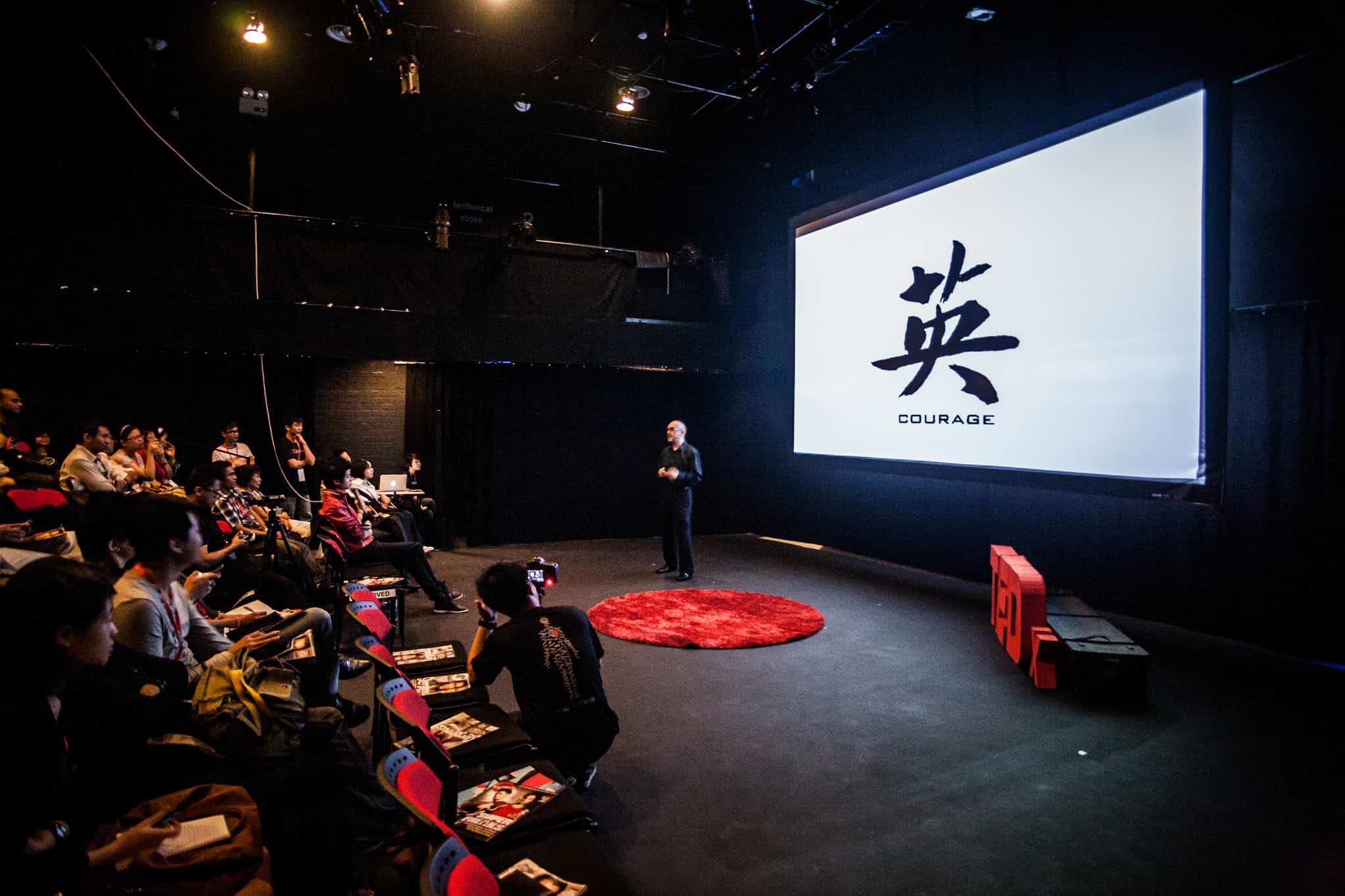
2012: tedx penang, speaking about leadership & life journeys
4. What kind of relationship do you expect to have with your boss?
Unfortunately, corporate culture teaches us hierarchy. This has the tendency to put us all in boxes and structures, with grids and lines of reporting. There are hard reporting lines and dotted reporting lines. There are KPIs, evaluations and reviews, and there are job descriptions. These become the ball and chain in an organization, as well as between a boss and his/her subordinates.
To me, my boss and I should be partners. Partners who have the same goals, vision, mission, and the same values. Each will have different skills and abilities, and thus a different task to accomplish – and together we become stronger.
We have seen this time and time again, where bosses are respected for the chair they occupy and not because of themselves personally. Then there are others who are not the “official” bosses but are indeed the stronger leaders in an organization.
And thus, the qualities I expect from my boss (and those I practice myself for my team) are built around partnership. I expect the relationship to be trusting, open, constructive, and genuine, without being afraid of being vulnerable. Criticism needs to be respectful, constructive, and goes both ways, as no one is perfect. Failure after all, is part of the learning experience.
5. Do you think that to be a good leader, you’d need to start from the bottom?
Leadership is neither genetic nor vested. It is earned and learnt. This is done not by reading textbooks, but by doing.
We become great leaders by observing others. Look at your current leaders and observe how their behaviour affects YOU. Unless we know what a good or bad leadership style is, and how it affects us personally and professionally, how can we become better leaders ourselves?
We cannot, therefore, be assigned to be a leader and start leading from a vacuum. We need to pay our dues and learn. We must learn to walk before we run, and it’s the same with leadership – we need to start from the bottom before we can lead effectively.
6. Nurture vs nature, do you think leaders are born or made?
Undoubtedly, as I said above, great leaders are made. What great leaders (good & effective leaders that is) should do, is nurture future leaders. Identify the people who they see as having potential and nurture them into becoming future leaders.
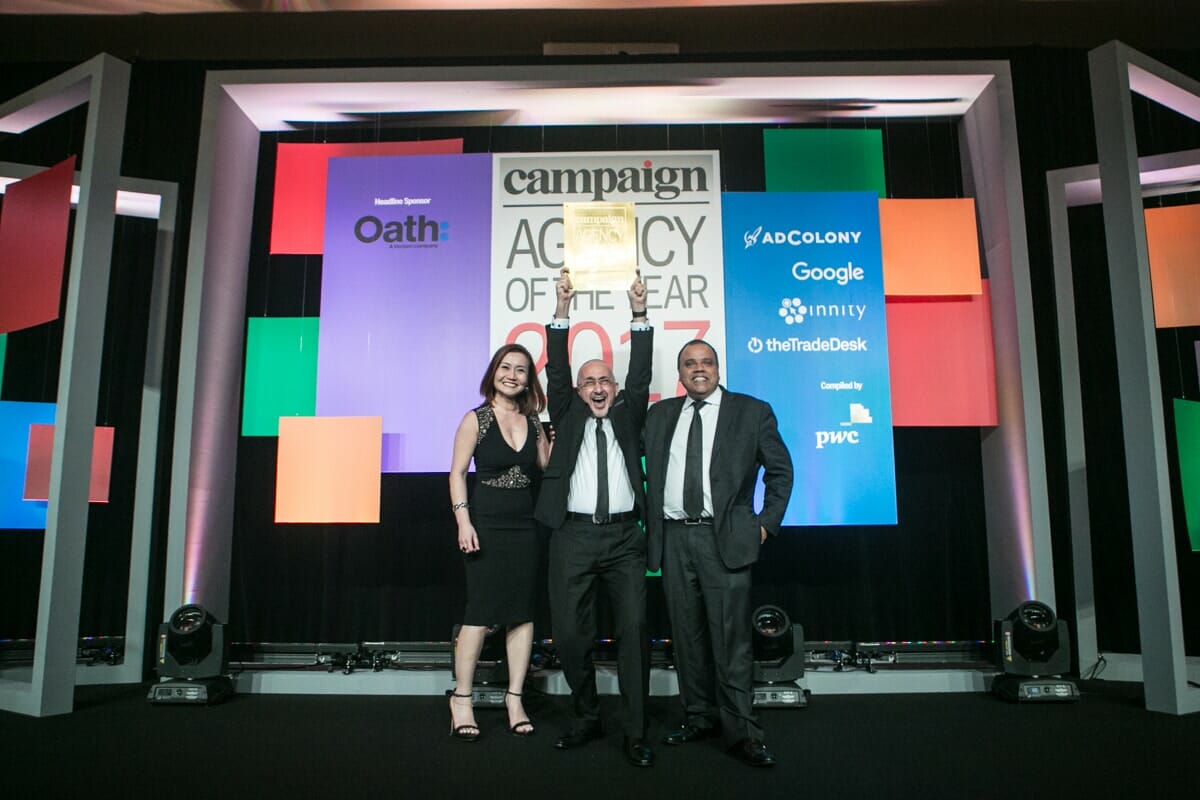
havas media group winning gold – best media agency in malaysia, december 2017!
7. In a business, who comes first? The company or your staff?
Kei Ueno, one of my most amazing bosses and partners, and the Chairman of Starcom Japan while I was there, taught me the 3Ps: People à Product à Profit
The magic touch was when Ueno-san insisted that the 3Ps MUST be put to practice in that order. People come first. Only then does the product come along, before the profit.
To this I agree whole-heartedly. I have seen the success from this practice, and the failure from not doing so.
Unless our teams are motivated, excited, committed, and believe in our vision and mission, there is absolutely no way for the company to achieve greatness. Period.
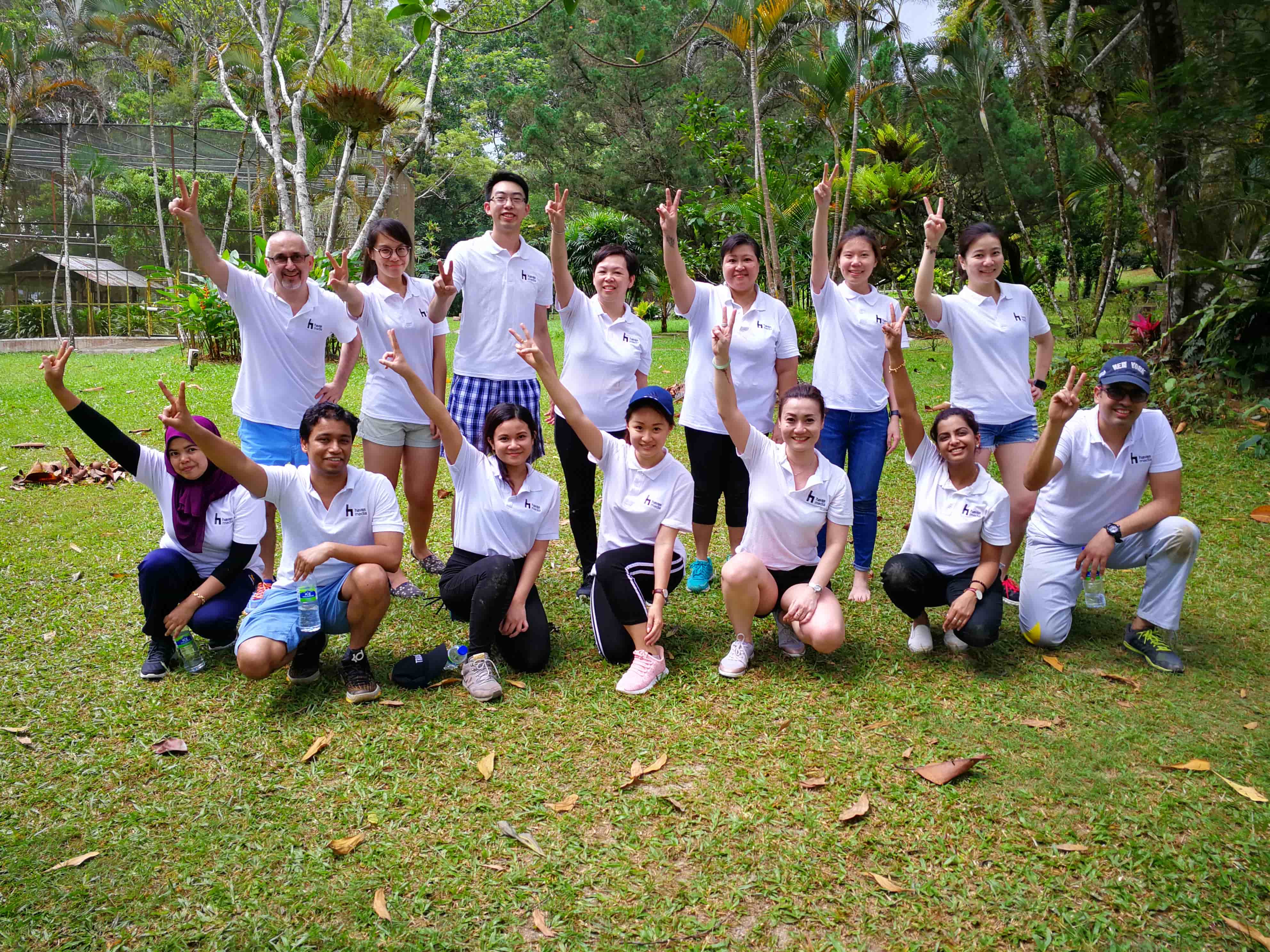
havas media group malaysia, one amazing team in the making…
8. How do you balance between tending to the needs of the company and tending to the needs of your employees?
These two go hand in hand. What good is a company without employees who believe in its vision and have a sense of belonging? If we are in a situation where people work for money only, the relationship becomes transactional. It may work, but the magic will never be there, and success will never be fully achieved.
Having said so, the company is not a welfare institution either. Its policies and welfare shouldn’t be abused. In which case, the ones who disrespect company policies are doing a disfavour not to the company itself, but to the rest of the employees.
It is true:
People are in the heart of each company.
People can think of smart ideas
People can execute them
People can imagine
People can identify problems and solutions
People can adopt new practices
People can create success
And at the same time…
People must have the responsibility of making the company successful
People must believe in its values
People must embrace its policies
People must adopt change that is for the betterment of the future
People must produce the best work
People must deliver value to the clients
The balance and magic happen when the vision, mission, and values of the company are not just sitting in a frame on the reception wall gathering dust, but are alive in its practices and objectives.
A company and its employees should work as a partnership, and not a linear relationship or one-way street.
9. What advice do you have for people who work with millennials?
The millennials are perhaps the most powerful segment of society. They are the ones who are preparing themselves to enter the workforce (still studying in school), the young employees armed with passion and eagerness to change the world, and the ones who are in senior positions and ready to transform companies and cultures.
Millennials are officially classified as the 18 – 34-year olds. It’s a very diverse group!
For me, though, the bottom line is simple: treat people with respect, trust them, and empower them to do the right thing, and they will. Millennials are perhaps more eager to advance than the older generations, but they are aware and concerned.
To ‘manage’ them better we need to:
- look back in order to move forward, and
- let go.
If we look back, we will realize that when we started we had older bosses who had certain ways of doing things, and we were the ones pushing the boundaries, coming up with innovative ideas, being impatient, and criticizing our bosses for their inability to see what we saw. This is a fact – if it wasn’t, the world would not have progressed as it has. And the moment our bosses embraced change, that was when we moved forward and created greatness.
We need to do the same. We must believe that embracing change will bring us to a better place. This includes embracing the millennials’ new ways. We must be sensitive to the way they demonstrate loyalty, the way they want flexibility, the way they want autonomy, and my favourite – the way they want a work-life balance.
So, we need to look at the past to understand, and then embrace the present and let go. Unless we do so, we won’t succeed, and we end up being the ones who will do the work without support. To me, that’s a short-term solution.
We must put significant effort to teach millennials and make them see what we see. Simply embracing the new by discarding the old is dangerous. A balanced and respectful relationship which nurtures, teaches, and builds on old principles to derive new paradigms is the way to go.
10. Many brands and employers find it challenging working with millennials, what do you think are the frequent mistakes leaders make when managing millennials?
As mentioned above, it’s the unwillingness to change, and admit the world is changing. If we are to be great leaders, then we need to practice the values which benefits us all, including the millennials.
We also need to make them see the value of the past. If I may juxtapose this to a parent-child relationship, the onus is on the parent to teach and adjust to the new world, or else the parent loses the battle. And as NLP teaches us, the task is on the one who delivers the message to be understood. It is that simple, yet hard to implement.
Of course, with the millennials, the responsibility lies in them as well.
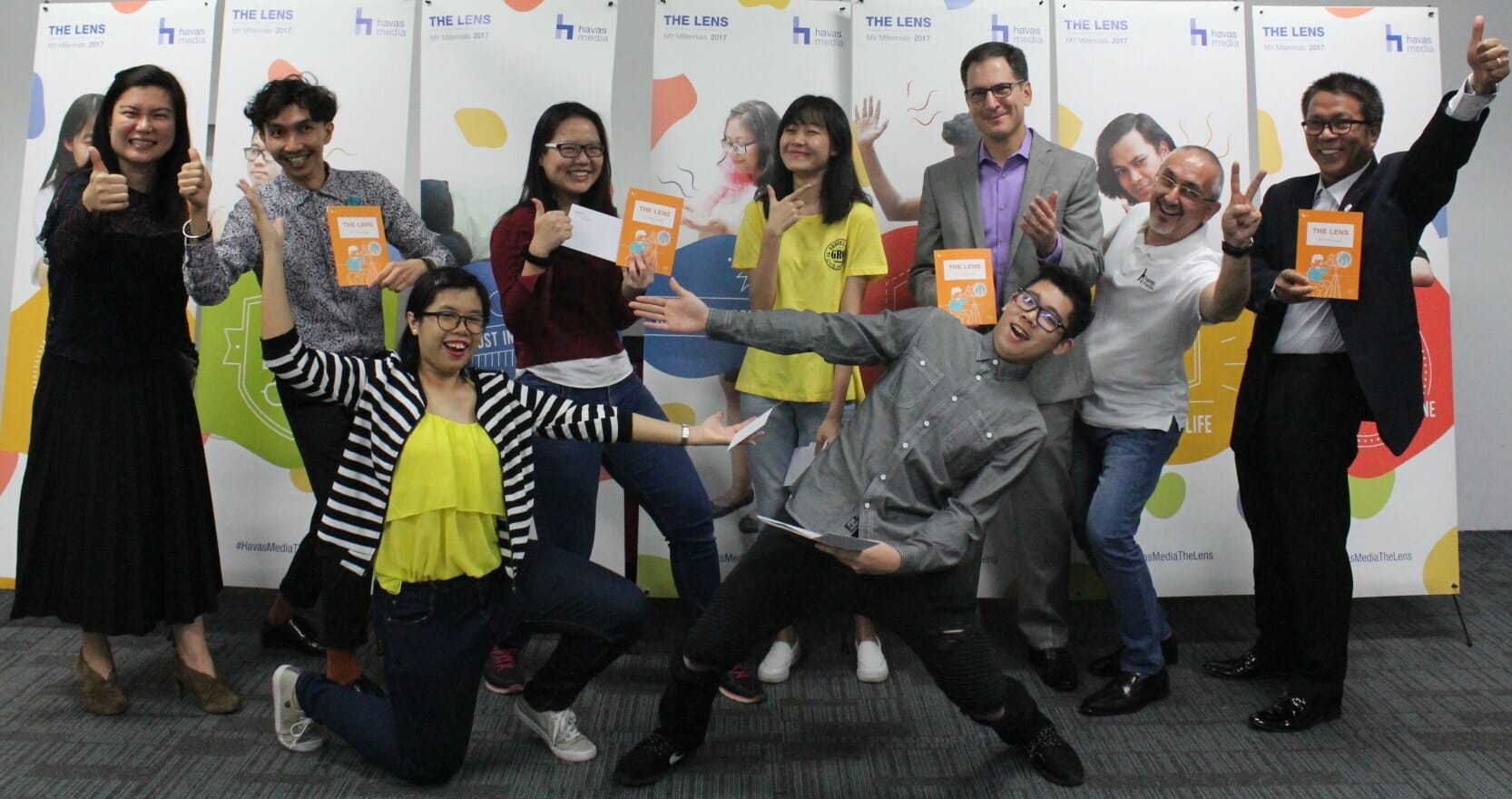
the inti millenials, the inticredibles class of 2017, after the end of their internship at havas media
11. Who were your leadership role models and why?
I have been blessed with amazing leaders and bosses in my personal and professional life. Looking back, some of the most influential were:
a) My mother. She was kind, empathetic, forgiving and loving, yet determined with a no-nonsense management style. She’d negotiate hard with the contractors and the farm workers, yet she’d do so with respect and tactfulness, respecting the individual and the rights of all.
b) Anna Besilla, the Media Head of JWT in Athens. Anna was a tough one. She’d yell, direct with an iron fist, and was relentless in business. She was the iron woman of media in Greece back then.
Despite that, she was soft inside, but only if anyone could bypass the hardcore, no-nonsense business façade of hers. I was one of the few who managed to bypass it. Miraculously, while she yelled and scolded EVERYONE in the media department, she never did so to me.
Looking back, I wonder if it would have been better if she adjusted her style to allow others to see the real her, without of course compromising her seriousness and dedication to the business. Vulnerability is strength, and showing it needs practice, courage and acceptance.
c) The triptych leaders in Japan, who became catalysts for me in the years to come:
- Kei Ueno, the Starcom Japan Chairman, who trusted me completely and shared his knowledge with me generously.
- Keith Moran, my profound, regional MediaVest boss, who taught me to be efficient and effective: to do the right thing and do that thing right.
- Jack Klues, the global CEO of SMG then, an amazing media man, smart, appreciative and compassionate.
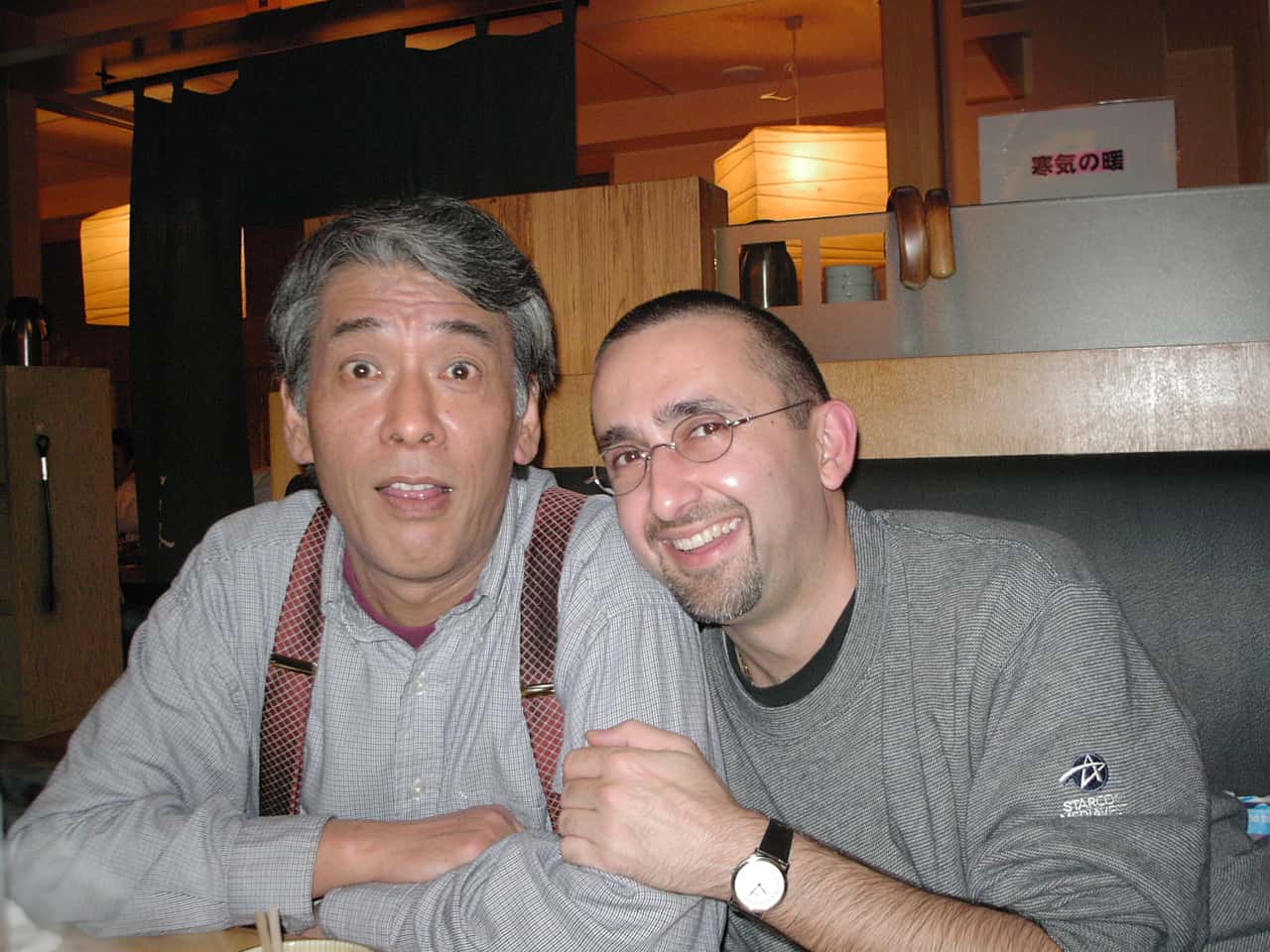
kei ueno, starcom japan chairman, 2001
These three men were not “bosses”. They were partners, mentors and coaches. They never talked down to me or set guidelines for corporate engagement. The phone lines were always open, and their trust was empowering.
They asked my opinion and advice, not to test me if I knew, but to get guidance on how to proceed. They were partners and respectful team mates, who became catalysts for our company’s greatness. And they were never afraid to give praise, while their criticism was constructive and educational. Truly golden years.
d) Barry Cupples, the APAC Omnicom Media Group CEO. Without any grain of doubt, Barry was the biggest catalyst for me to achieve all we achieved in the glory days of OMG Malaysia. Barry is an incredible man of action. Firm yet kind, directive yet flexible. I could not have asked for a better boss to guide me and lift my spirits higher.
He had presence. You knew he was there. And you knew that you can screw up and he’d teach you how to get back up and give you more weapons to fight. He was a positive influencer, and someone I’m proud to know. Onwards & Upwards, he always said to me, and I’ve exemplified him ever since!
e) My current boss and partner in crime, Vishnu Mohan. He’s an unbelievable man, who always sees the good side of people, and sees the opportunity rather than the problem in any situation. Resilient and determined, humble yet a visionary, he empowers and leads softly but with strength that resembles that of water.
Some might say that I say so because he’s my boss today. The truth is, we sometimes choose our bosses, as they become catalysts to how we grow, and what we become. A few years back when my conversation with Vishnu started, the interview was mutual. He was the reason I agreed to take on the challenges of building a brand-new agency during the faltering economy in Malaysia, while leaving my successful ten-year journey at Omnicom. He brings balance in my passion and helps me sharpen my logic and strategy in our plans. A true legend and a blessing to partner up with and learn from!
12. IRL is about real people and their stories (through life experiences). What advice would you give to someone who’d like to be a good leader?
Oh goodness, this question is another full interview in itself! But I guess we have covered it all in the questions above. If I am to distil it to a few points, here you go.
Leadership is neither vested, nor genetic. It is earned. To be a great leader, you must stay focused, be aware, and look at yourself from the eyes of the people whom you want to lead. How would you like to be led and motivated if you were them?
Then practice these principles, and then some more. Have the courage to be humble and vulnerable, learn to fail, and never give up. Make the buck stop at your desk, and say out loud, “if it’s to be, it’s up to me!”
Lead by example and put people first. In the end, no company can pay you enough to reach internal greatness and find your own purpose. Instead, the company will expect you to deliver its KPIs. In most cases, it’s somewhat transactional, not personal.
It is only the people who lift you up higher, and help you achieve both your goals as well as the company’s. The team is always worth more than any company, and the team culture and unity are what you must nurture. As Drucker said once, culture eats strategy for breakfast. That’s damn true. Put people first and move Onwards & Upwards!
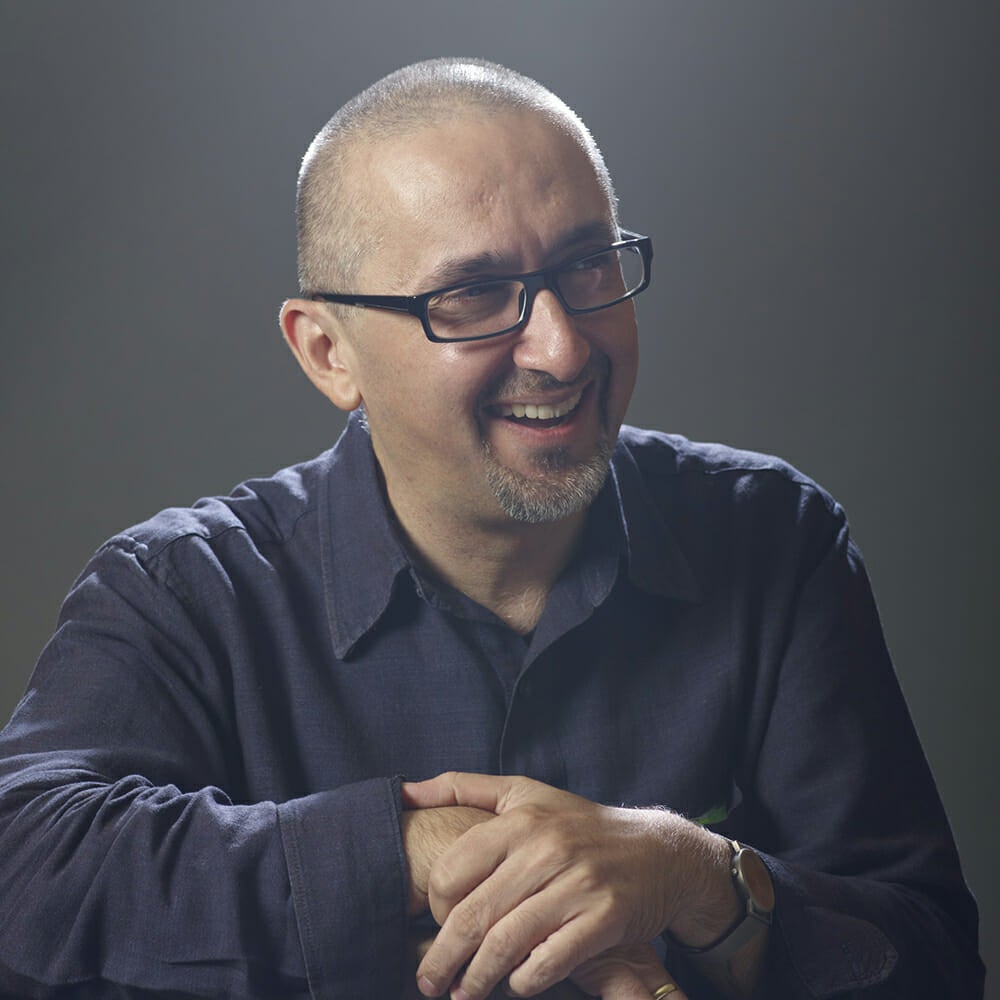
About Andreas Vogiatzakis: Born and raised in rural Crete, Andreas quit the prestigious Mathematics University of Athens to pursue his passion for Advertising at the University of Florida, graduating with High Honors. Forging a life journey from New York to Tokyo, Taiwan and Malaysia, he has managed several media agencies, served in numerous industry associations & advisory boards, in university panels and many awards juries. A sought after speaker, he has conducted numerous high-powered learning sessions for several universities and the industry at large. He is currently the CEO of Havas Media Group Malaysia. Andreas is a Certified Professional Coach & NLP practitioner and the recipient of several industry awards and accolades. He finds his purpose to be a catalyst for greater things to come. Google him & contact him at moc.sulpvma@vma and his IRL profile here.
More from Real Skills
How I Saved Almost RM50,000 On Buying My First Car
Here's how this Malaysian man with a RM3,500 salary saved RM50,000 on his first car.
Angry M’sian Boss Demands Unpaid Overtime Over Raya, Causes 9 Staff To Quit
An anonymous employee at a local SME shares how a bad-tempered boss eventually caused 9 staff to quit before Hari …
I Studied In Chinese School As A Malay Boy, Here’s What I Learnt
Every time I used Mandarin outside of school, family members would come up to me at gatherings and ask me …














